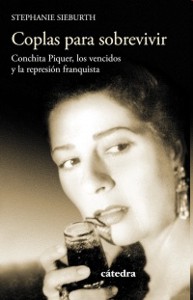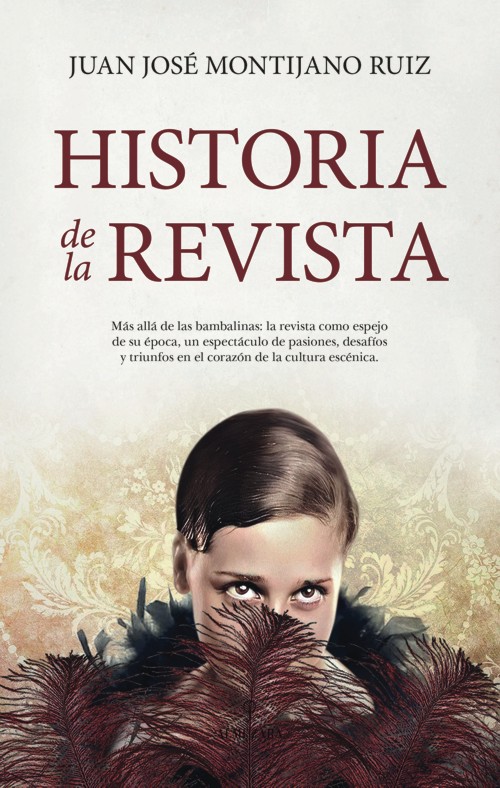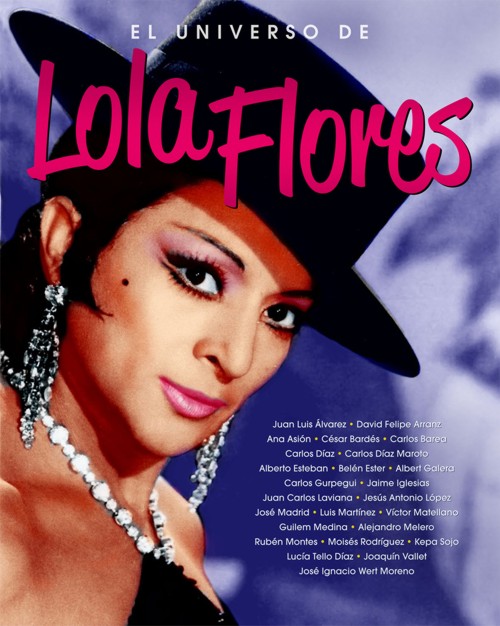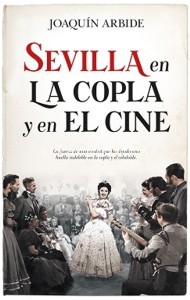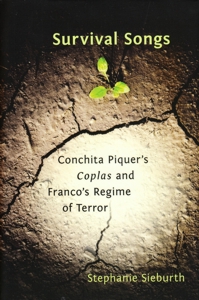
Conchita Piquer's Coplas and Franco's Regime of Terror
Sieburth, Stephanie
University of Toronto Press. 2014Ficha técnica
- EAN: 9781442644731
- ISBN: 978-1-4426-4473-1
- Editorial: University of Toronto Press
- Fecha de edición: 2014
- Encuadernación: Cartoné con sobrecubierta
- Dimensiones: 16x24
- Idioma: Inglés
- Nº páginas: XIV+258
Disponible
SÓLO 1 EN STOCK - dato actualizado el 19/04/24 a las 23:05¡GASTOS DE ENVÍO GRATIS!
PVP. 46,35€
Añadir a la Lista de deseos
How can a song help the hungry and persecuted to survive? Stephanie Sieburth?s "Survival Songs" explores how a genre of Spanish popular music, the copla, as sung by legendary performer Conchita Piquer, helped Republican sympathizers to survive the Franco regime?s dehumanizing treatment following the Spanish Civil War (1936?39). Piquer?s coplas were sad, bitter stories of fallen women, but they offered a way for the defeated to cope with chronic terror, grief, and trauma in the years known as the "time of silence."
Drawing on the observations of clinical psychotherapy, Sieburth explores the way in which listening to Piquer?s coplas enabled persecuted, ostracized citizens to subconsciously use music, role-play, ritual, and narrative to mourn safely and without fear of repercussion from the repressive state. An interdisciplinary study that includes close readings of six of Piquer?s most famous coplas, "Survival Songs" will be of interest to specialists in modern Spanish studies and to clinical psychologists, musicologists, and those with an interest in issues of trauma, memory, and human rights.
CONTENIDO:
Acknowledgments
Introduction: Conchita Piquer?s Coplas as Psychotherapy
1. Camouflage: The Psychology of Survival in Franco?s Spain
2. An Introduction to the Copla and its Star Performer
3. Coping with Terror Through Popular Music: "La Parrala" ("The Wine Lady")
4. Paradise Lost: "Ojos verdes" ("Green Eyes") as Ritual of Separation
5. "Tatuaje" ("Tattoo"), the Unburied Dead, and Complicated Grief
6. The "Other Woman": "Romance de la otra" as Ritual of Marginalization and Disenfranchised Grief
7. Reasserting Personhood through Popular Song: "Romance de valentía" ("Ballad of Bravery") and "La Ruiseñora" ("The Nightingale")
8. When a Radio Song is the Meaning of Life: Mending the Torn Fabric of Identity through Narrative, Music and Interpretation
Conclusion
Notes
Bibliography


